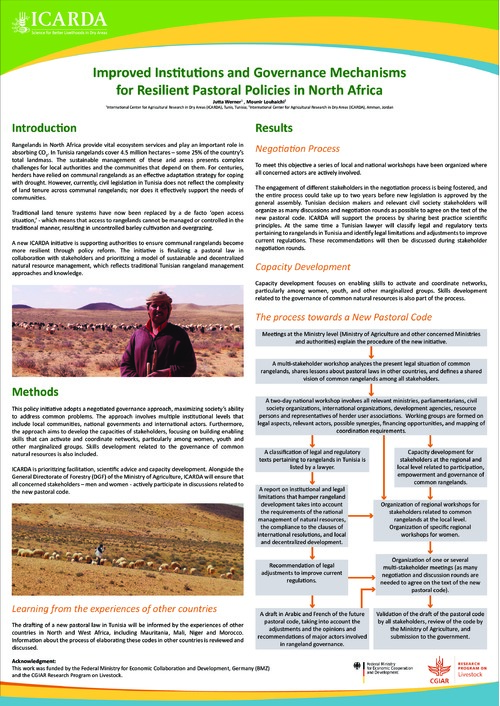Resource information
Rangelands in North Africa provide vital ecosystem services and play an important role in absorbing CO2. In Tunisia rangelands cover 4.5 million hectares – some 25% of the country’s total landmass. The sustainable management of these arid areas presents complex challenges for local authorities and the communities that depend on them. For centuries, herders have relied on communal rangelands as an effective adaptation strategy for coping with drought. However, currently, civil legislation in Tunisia does not reflect the complexity of land tenure across communal rangelands; nor does it effectively support the needs of communities.
Traditional land tenure systems have now been replaced by a de facto ‘open access situation,’ - which means that access to rangelands cannot be managed or controlled in the traditional manner, resulting in uncontrolled barley cultivation and overgrazing.
A new ICARDA initiative is supporting authorities to ensure communal rangelands become more resilient through policy reform. The initiative is finalizing a pastoral law in collaboration with stakeholders and prioritizing a model of sustainable and decentralized natural resource management, which reflects traditional Tunisian rangeland management approaches and knowledge.


